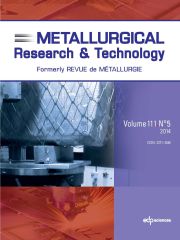Article contents
The “Cost Tool”: operating and capital costs ofexisting and breakthrough routes in a future studiesframework
Published online by Cambridge University Press: 29 September 2009
Abstract
The “cost tool” is a model that calculates the CAPEX & OPEX of the ULCOS routes. Along with the “CO2 tool”, it provides one of the key elements necessary for selecting the best routes: it was used for decision making when the program moved from phase I, where 80 different routes where under investigation, to phase II, where 5 routes only are studied further; it now provides updated information on the on-going routes of the last phases of the program. OPEX are calculated by an extension of the CO2 tool, based on plant by plant simulation of the flow sheet, and CAPEX result from the concepts provided by the line SPs scaled by standard chemical engineering design rules. The tool is embedded in a sophisticated futures studies framework, using the same longterm (2050) scenarios as the economic modeling of energy futures carried out by LEPII [E. Bellevrat, P. Menanteau - Scenarios and economic mod-eling, Proceedings, ULCOS-4, Essen, October 2008.], which assumes a series of futures ranging from mild to strong CO2 constraint. This gives an unusual vision of when and how the CO2 externality will be internalized in the economy. Indeed, as claimed by the Steel Industry, the existing process routes are very efficient and, therefore, in the context of prices encountered since 2000, there are not any no-regret ULCOS routes. The selection of ULCOS routes has been carried out in coherence with the tool conclusions, although other, non-model based considerations have also been taken on board.
- Type
- Research Article
- Information
- Metallurgical Research & Technology , Volume 106 , Issue 9: Selected papers from 4th ULCOS SEMINAR (Part 1) , September 2009 , pp. 337 - 349
- Copyright
- © La Revue de Métallurgie, 2009
- 11
- Cited by




